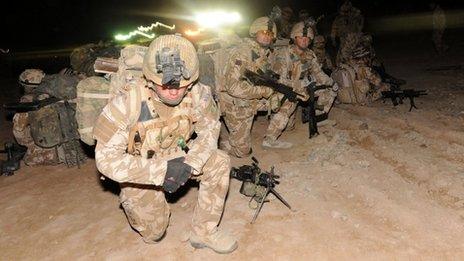Queen's Dragoon Guards start final tour of Afghanistan
- Published
Welsh troops' hopes and fears on final combat tour of Afghanistan
After more than a decade of operations, Thursday marks a historic milestone in Britain's role in Afghanistan, as the final tranche of Welsh troops set off for their last combat tour of the country.
Soldiers from 1st The Queen's Dragoon Guards, better known as the Welsh Cavalry, have already completed two gruelling tours, suffering the loss of two men.
In preparation for this third tour, the troops have spent months gearing up.
Their aim is to advise and mentor Afghan National Security Forces (ANSF) so when they withdraw at the end of this year, the handover is complete.
Commanding Officer, Lt Col Will Davies said the regiment will leave behind a "much better place" than they found.
"We have set the conditions for them now to take it forward and achieve even more than we have," he said.
"I'm really confident having seen everything they've achieved in the last few months and years, they'll make a great success of it."
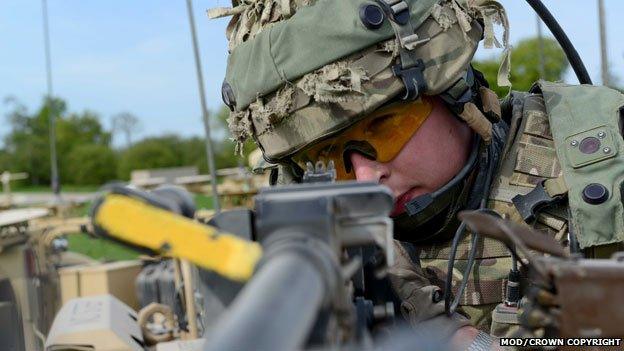
Sharp shooting - soldiers have been in training for months in the lead-up to the tour
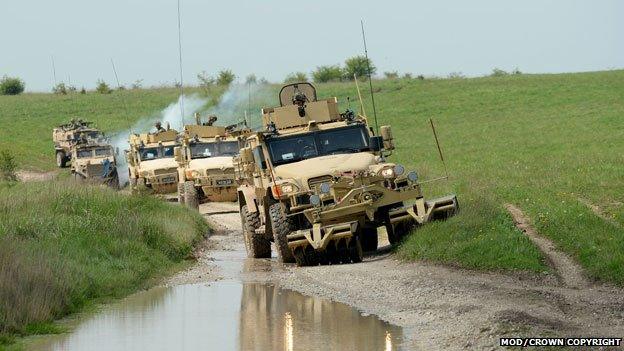
On exercise - B Company stage a mounted patrol using Husky and Foxhound vehicles
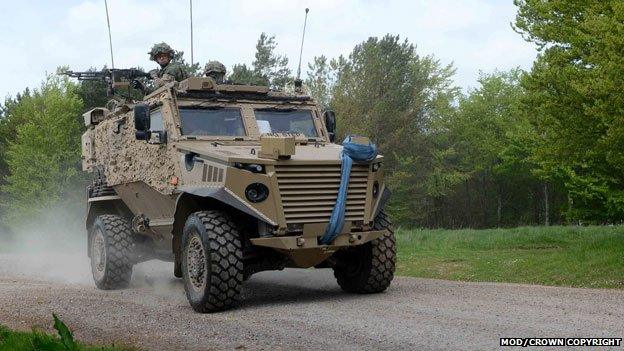
Exercise Pashtun Dawn took place on Salisbury Plain ahead of the final deployment
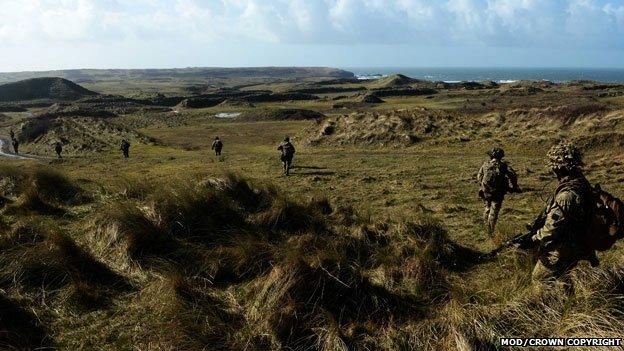
The regiment also took to the Castlemartin military range
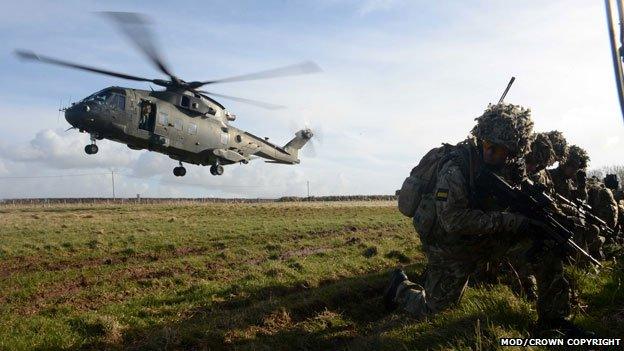
Castlemartin covers 2,400 hectares of Pembrokeshire National Park
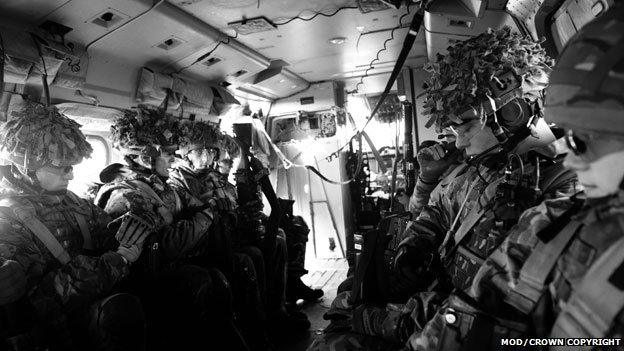
The regiment will be operating in the Afghan summer heat
Many of the soldiers being deployed on Op Herrick 20 have already experienced the realities of being in theatre.
"It's everything from not seeing your girlfriend, to day to day being stuck in the heat of the desert," said Sergeant David Chant from Cardiff.
'Capable force'
"I've been there in the summer before and it can hit 55C at one o'clock in the afternoon. That coupled with chucking on your body armour and helmet is hard."
His experience will stand newer recruits in good stead and he said it is important to pass it on to others.
Younger soldiers like Trooper Gareth Hugo, also from Cardiff, will benefit from Sgt Chant's experience. This is his first tour.
"I'm anxious," he said. "I can't wait to get out there, but I haven't been on tour before so I'm nervous about what to expect."
In the months leading up to the tour the soldiers have spent time training at Castlemartin in Pembrokeshire, on Salisbury Plain in Wiltshire and at the regiment's home at Dempsey Barracks at Sennelager, Germany.
Skills being honed include sharp-shooting, where the men practice hitting targets up to 1km (0.62m) away, and disabling improvised explosive devices (IED).
But the emphasis on this tour is for soldiers to take a step back from a combative role and allow the ANSF to operate by themselves.
This is role L/Cpl Thomas Warner from Port Talbot relishes.
"I'm with the Kandak Liaison Team. Our role will be mainly to support the Afghan National Forces," he said.
Last time he was in Helmand Province on tour L/Cpl Warner had a very different task protecting a major highway, the 611.
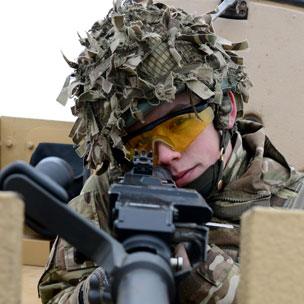
L/Cpl Thomas Warner has been on an earlier tour
He added: "At the time we didn't really feel like we were doing much because it was quite quiet, but looking back at how the 611 is now we had a very good impact as it's quite a safe area."
Although that tour is viewed as a success, that success came at a price - Two soldiers from the regiment lost their lives.
L/Cpl Richard Scanlon, 31, from Rhymney, Caerphilly, and Lt David Boyce, 25, from Bath, Somerset, were killed when their vehicle hit an IED in November 2011.
But the optimism ahead of this tour is high with the soldiers keen to make a difference and to show they are up for fresh challenges.
"I'm looking forward to seeing the troops gel and work together with the ANSF," said Sgt Chant. "There are difficulties with language but we've already proven we can overcome that. "
"We know the ANSF is already a more than capable force and they will continue to carry out the work that's needed to secure the country when we leave."
- Published15 October 2015
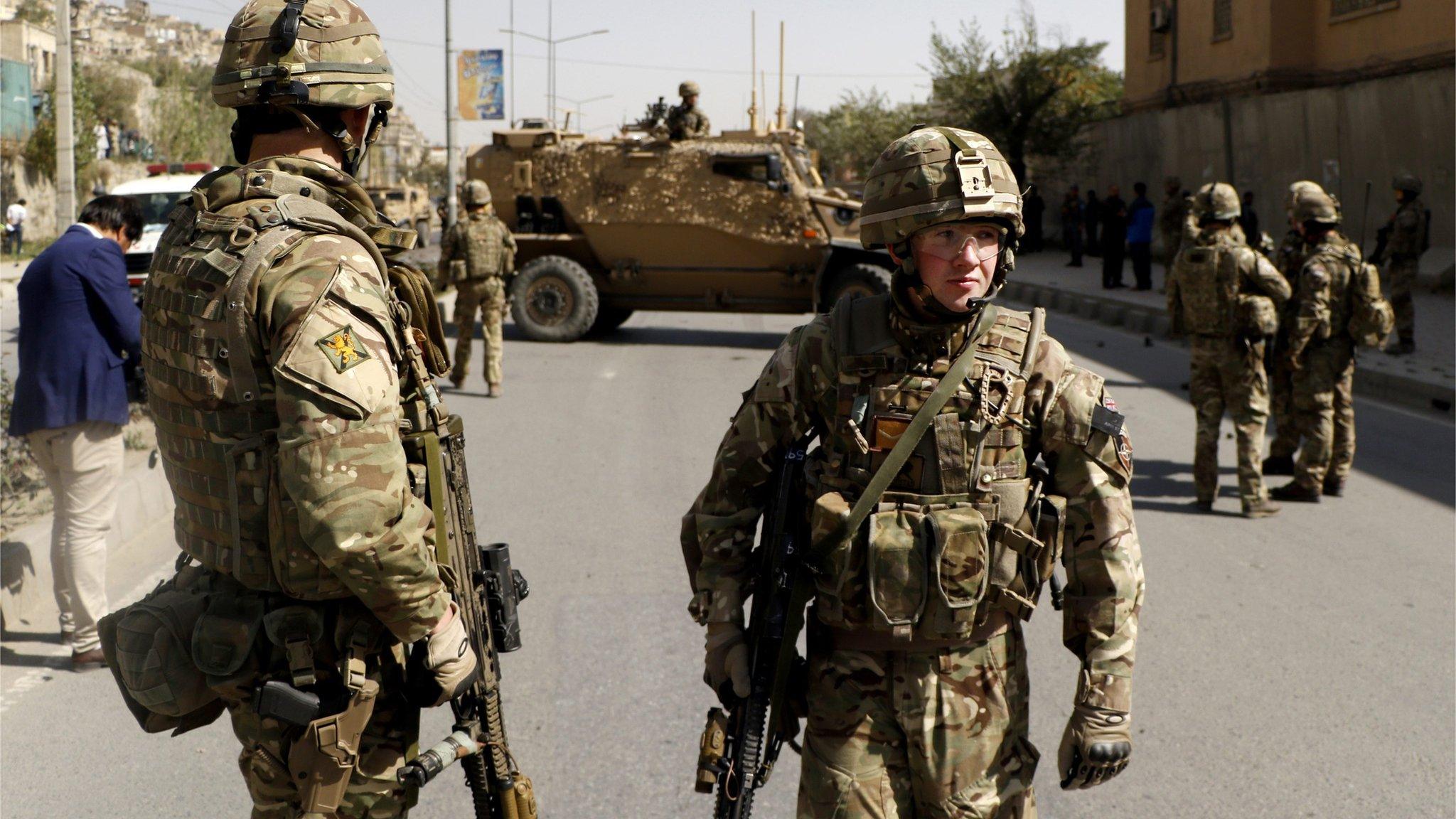
- Published17 May 2014
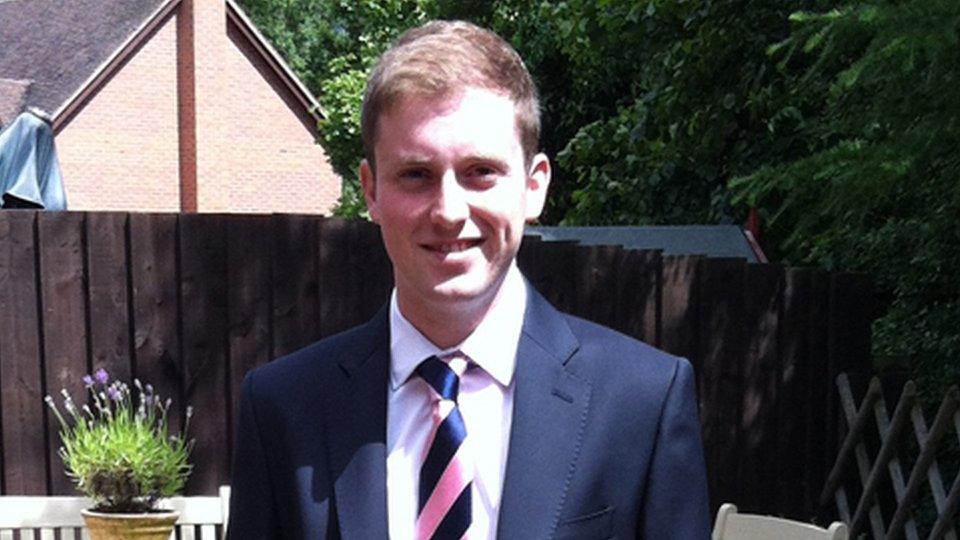
- Published5 July 2012
